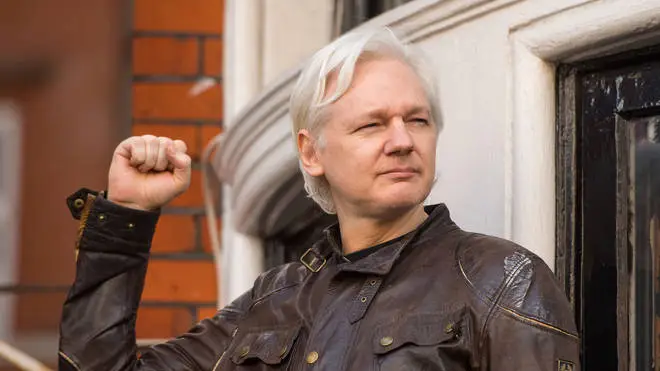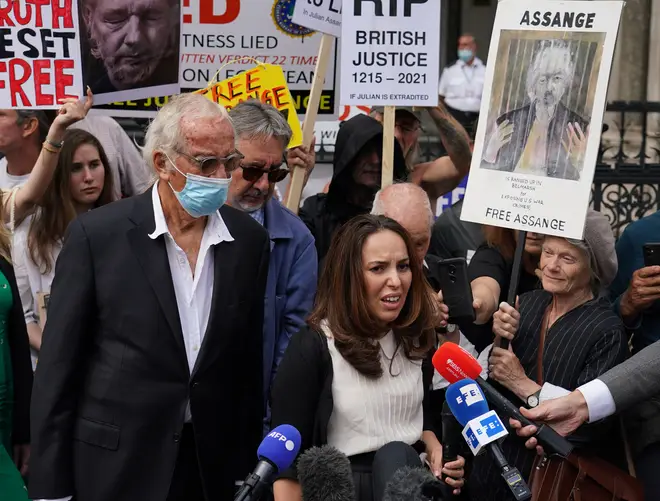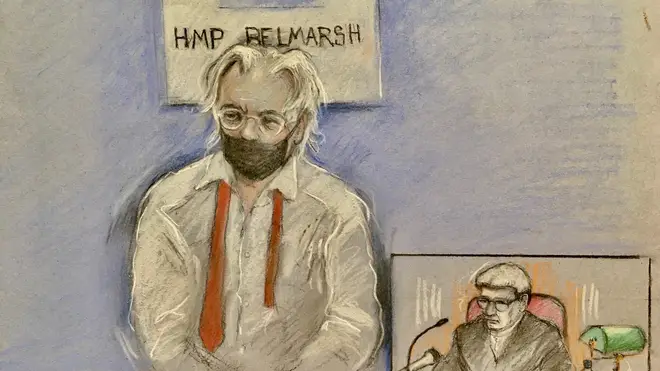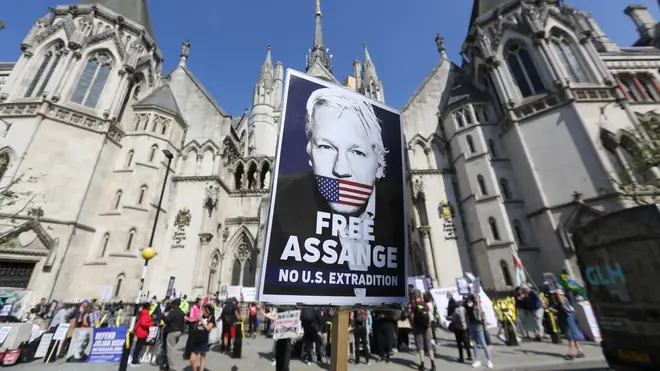
Matthew Wright 7am - 10am
11 August 2021, 06:07 | Updated: 11 August 2021, 16:22

A UK judge has granted the US government permission to challenge the decision not to extradite Wikileaks founder Julian Assange.
After a multi-week extradition hearing, District Judge Vanessa Baraitser ruled in January that Assange should not to be sent to the US, citing a real risk of suicide.
But on Wednesday Lord Justice Holroyde, sitting with Mrs Justice Farbey at the High Court, granted permission to challenge this on the basis that too much weight had been attached to the evidence of psychiatrist Professor Michael Kopelman.
Protesters gathered outside the High Court all day calling for Assange to be freed. Former Labour leader Jeremy Corbyn and Assange's partner Stella Moris were both there to show their support.
Assange is wanted in the US on allegations of a conspiracy to obtain and disclose national defence information following WikiLeaks' publication of hundreds of thousands of leaked documents relating to the Afghanistan and Iraq wars.
He has been held in Belmarsh Prison since 2019 after he was carried out of the Ecuadorian embassy in London by police before being arrested for breaching his bail conditions.
Read more: WikiLeaks founder Julian Assange denied bail
Read more: Assange cannot be extradited to US, judge rules

Arguments by lawyers representing the US government today revolved around the evidence of Professor Kopelman, who was found to have misled the court over Assange's relationship with Ms Moris.
Lord Justice Holroyde concluded it was "very unusual" for an appeal court to have to consider evidence of an expert, which has been accepted by a lower court, who has been found to have misled the court.
The judge said it is "at least arguable" the judge erred in basing her conclusions on the professor's evidence in those circumstances.
He added: "Given the importance to the administration of justice of a court being able to reply on the impartiality of an expert witness, it is in my view arguable that more detailed and critical consideration should have been given to why (the professor's) 'understandable human response' gave rise to a misleading report."
Lord Justice Holroyde said the full appeal will be heard at the High Court on October 27 and 28.
Read more: Lawyers and academics call on government to free Assange
Read more: Dame Vivienne Westwood protests treatment of Assange in bird cage

US lawyers told the High Court there was a "very obvious need for scrutiny" of assessments of Assange's mental health.
Clair Dobbin QC said it will be argued at the full hearing that the district judge based her decision not to extradite Assange on a "predicted risk of suicide", rather than his risk at the time of the hearing.
Ms Dobbin said one aspect of the US government's appeal will focus on the requirement in law that an individual must be "so ill" they are unable to resist suicide for a decision to be taken not to prosecute - or in Assange's case, extradite - them.
She told the court: "It really requires a mental illness of a type that the ability to resist suicide has been lost.
"Part of the appeal will be that Mr Assange did not have a mental illness that came close to being of that nature and degree."
She said that, having found that Professor Kopelman had misled the court, Judge Baraitser was wrong to then find the professor had not "failed in his duty to the court".

She said: "Experts aren't allowed to mislead the court for any reason, let alone apparently... to protect the privacy of Mr Assange's family.
"We say that ought to have been of real concern to the court and it ought to have come to a much more exacting analysis of Professor Kopelman's evidence."
Edward Fitzgerald QC, representing Assange, told the court that Judge Baraitser, having heard all of the evidence in the case, was in the best position to assess it and reach her decision.
He said Professor Kopelman's report, in which he did not reveal the true nature of Assange's relationship with Ms Moris, was given long before any court hearing and against a background of concern for the "human predicament" in which Ms Moris found herself at the time.
The barrister said this included fears for her safety and that of the couple's two children, after a surveillance organisation had taken DNA from their baby's nappy, then turned its attention to Ms Moris and plotted to kidnap or poison Assange.
He said: "The district judge was right to find that she had not in fact been misled, and that it was an understandable response to Ms Moris's predicament.
"The court had become aware of the true position in April 2020."